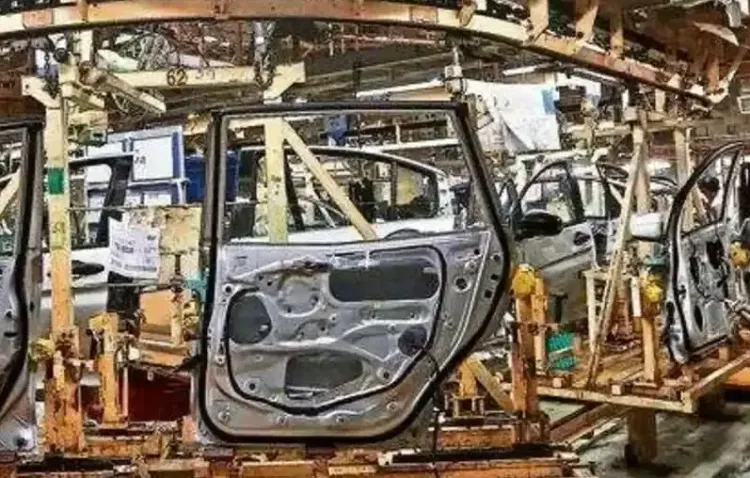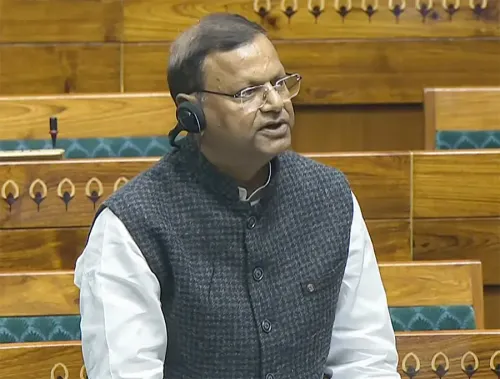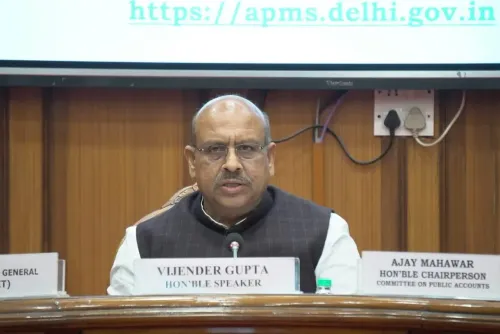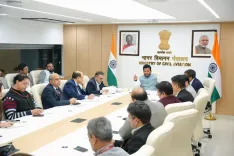NITI Aayog Predicts India's Automotive Component Production Will Hit $145 Billion by 2030

Synopsis
Key Takeaways
- Production Growth: Expected to reach $145 billion by 2030.
- Export Increase: Exports projected to rise from $20 billion to $60 billion.
- Job Creation: 2-2.5 million new employment opportunities.
- Trade Surplus: Anticipated trade surplus of $25 billion.
- Global Share: India's share in the automotive value chain to grow from 3% to 8%.
New Delhi, April 11 (NationPress) The nation’s automotive component production is anticipated to soar to $145 billion by 2030, with exports projected to triple from $20 billion to $60 billion. This growth is expected to create 2-2.5 million new job opportunities, as indicated by a report from NITI Aayog released on Friday.
This expansion would yield a trade surplus of approximately $25 billion and significantly elevate India’s stake in the global automotive value chain from 3 percent to 8 percent, according to the report titled "Automotive Industry: Powering India’s Participation in Global Value Chains".
Furthermore, this growth is likely to increase direct employment in the sector to a total of 3-4 million jobs, as outlined in the report.
India has established itself as the fourth-largest global producer following China, the United States, and Japan, with an annual output of nearly 6 million vehicles.
The Indian automotive industry has developed a robust presence in both domestic and export markets, especially in the small car and utility vehicle segments. Initiatives like 'Make in India' and a cost-effective workforce are positioning India as a pivotal hub for automotive manufacturing and exports, the report highlighted.
The report was inaugurated by Suman Bery, Vice Chairman of NITI Aayog, alongside Dr. VK Saraswat, Member of NITI Aayog, and other officials.
The automotive sector is experiencing a significant shift towards electric vehicles (EVs), propelled by escalating consumer demand for sustainable mobility, regulatory mandates to cut carbon emissions, and advancements in battery technologies. The global surge in EV sales is reshaping the automotive manufacturing landscape.
Simultaneously, the advent of Industry 4.0 is revolutionizing automotive manufacturing. Innovations like Artificial Intelligence (AI), Machine Learning (ML), the Internet of Things (IoT), and robotics are enhancing production processes, boosting productivity, lowering costs, and introducing greater flexibility.
These digital transformations not only refine manufacturing practices but also promote new business models focused on smart factories and connected vehicles, as stated in the report.
NITI Aayog’s report also detailed various strategic fiscal and non-fiscal measures aimed at improving India’s global competitiveness in the automotive industry.
The proposed interventions are categorized into four groups based on the complexity and maturity of automotive components: emerging and complex; conventional and complex; conventional and simple; and emerging and simple.










